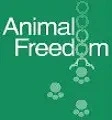Letting go of the attachment to animals |
Can you depend on animal love?
Emotional deficit and pets
Many people grew up in a type of emotional deficit. This deficit means that children are kept unsure about being unconditionally accepted by their parents or caregivers. This unconditional acceptance they do get from their dependent and faithful pets. Your cat rubs its face against your legs, your dog wags its tail enthusiastically, and this is seen as a form of appreciation. They appear to be glad that the master is home. And they are, because your coming home means food and attention, two things they can hardly influence themselves, in which they were made and kept dependent. Emotionally neglected people are often fixed on these shows of affection. This fixation is unpleasantly demonstrated by the reward these pets get for their open attitude towards people: they are locked inside cages or other tiny spaces. Just imagine them running away! Inside this prison the animal is available to its master until death parts them. In these pathetic wordings lies the parallel to human relationships. Pet owners are missing something that they try to regain from their pets. |
True animal love is letting them be free
There are good reasons to decide to get a pet, for instance when animals need shelter. But people looking for emotional compensation from animals for what they can't find in other people would be well advised not to get a pet. For animals this need for attachment is a lot less desirable. In the animal world there exists some loyalty between the animals themselves, but dependency relationships exist only between adult animals and their young. This may seem like a shortcoming of animals in their capacity for love, but in fact it is a good thing. Dependency between adult animals would mean a lack of freedom. And exactly this freedom is a characteristic of free nature. True love for animals is best shown by letting them be free.
To which we have to add that by freedom we don't mean animal liberators setting minks free. Letting animals be free means that you do not keep them as pets as a substitute for love, or set them free in an unsuitable environment (habitat) when you grow tired of them. |
Angling as a parallel form of seduction
The odd man out in our relationship toward animals is the fisherman. With angling, a fish is tempted to take the bait. It's a form of hunting that has many parallels to pleasure hunting and hunting for a partner. With their fishing rod, a type of extended penis, men wait by the side of the pond until a fish takes their seductive bait. The animal is hooked, reeled in, sometimes admired for a minute and then measured, shortly thereafter to be released again. Multiple contacts at the waterfront, you might say. And afterwards the fishermen brag to each other about how big it was and what a struggle it was to reel it in. And the fish? The fish (if it survives) swims away wounded, to chance becoming another fisherman's victim. |
Consuming animals as entertainment
We should try to realize this more. Do animals really need the situations in which we place them? That they are locked up as pets until we give them attention or ask them to give us attention? It's very unlikely that, given a choice, animals would have chosen to become our pets. We as humans would do the animal world a great service if we would stop consuming animals as pets, as a form of entertainment, and through sports.
If we are to stop abusing our world we need to let go of our attachments. This does not, as people often suppose, mean detachment, which implies complacency and not caring, and for some, going without material wellbeing and comforts. It is, quite simply, non-attachment. |
Angling for compliments
The fisherman is another one of those people who has not freed himself from the wish for confirmation. He angles for compliments. Had he been given enough love and attention as a child, he would feel no need to experience time and again whether the fish would bite. Not for nothing is fishing an activity mainly carried out by mischievous children and boring old men. Which is precisely the category that doesn't score well with women. However, mothers play a dual role in this. They hate being used by men and they hate that men fish. But still they would rather see their men spending their time on the waterfront and directing their energies towards fish than towards chasing women. |
Power, ego and self-assurance
 It's all about power and the ego. Society builds our ego and wants to make us believe that this ego is real and powerful, but we doubt and search for confirmation. Others, including animals, supply this confirmation, because they want to string us along and want us to believe we are really successful, that we have a position of power in society and towards the wife at home. But we are not sure, we want self-assurance and that's why many people are trying to find this in the battle with defenseless (small) animals. It's all about power and the ego. Society builds our ego and wants to make us believe that this ego is real and powerful, but we doubt and search for confirmation. Others, including animals, supply this confirmation, because they want to string us along and want us to believe we are really successful, that we have a position of power in society and towards the wife at home. But we are not sure, we want self-assurance and that's why many people are trying to find this in the battle with defenseless (small) animals.
|
|
|
|
|
| |

